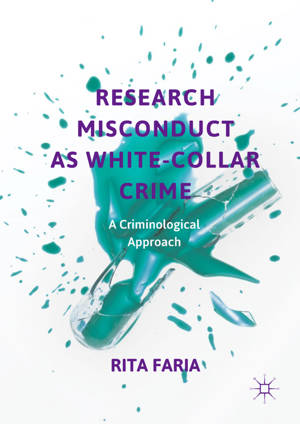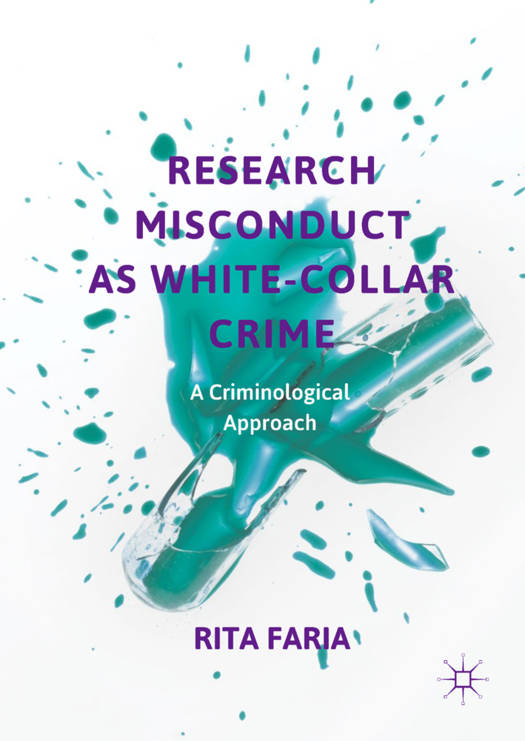
Je cadeautjes zeker op tijd in huis hebben voor de feestdagen? Kom langs in onze winkels en vind het perfecte geschenk!
- Afhalen na 1 uur in een winkel met voorraad
- Gratis thuislevering in België vanaf € 30
- Ruim aanbod met 7 miljoen producten
Je cadeautjes zeker op tijd in huis hebben voor de feestdagen? Kom langs in onze winkels en vind het perfecte geschenk!
- Afhalen na 1 uur in een winkel met voorraad
- Gratis thuislevering in België vanaf € 30
- Ruim aanbod met 7 miljoen producten
Zoeken
€ 152,95
+ 305 punten
Uitvoering
Omschrijving
This book explores the subject of research misconduct: its definition, what behaviours should fall under its label, and the types of preventive and repressive procedures that should be put to practice to combat it. Adopting a criminological perspective, Faria views research misconduct as a locus of analysis for corporate and white-collar crime. Based upon an empirical study involving in-depth interviews and documentary analysis, this original research offers an interesting approach to an age-old problem which is growing ever more important.
The commodification of research - together with perceived risks of research misconduct - is opening the way to ambiguous and ineffective forms of social control over scholars, affecting their commitment to research integrity and the responsible conduct of research. Despite this, however, little consensus around the phenomenon exists. Seeking to counter this, Faria opens up the discussion on the potentialsocial harms arising from the current state of affairs, and argues that that criminology should task itself with understanding and researching the pressing topic of research misconduct, including fabrication, falsification, and plagiarism, as well as questionable research practices.
Specificaties
Betrokkenen
- Auteur(s):
- Uitgeverij:
Inhoud
- Aantal bladzijden:
- 258
- Taal:
- Engels
- Reeks:
Eigenschappen
- Productcode (EAN):
- 9783319734347
- Verschijningsdatum:
- 4/10/2018
- Uitvoering:
- Hardcover
- Formaat:
- Genaaid
- Afmetingen:
- 148 mm x 210 mm
- Gewicht:
- 603 g

Alleen bij Standaard Boekhandel
+ 305 punten op je klantenkaart van Standaard Boekhandel
Beoordelingen
We publiceren alleen reviews die voldoen aan de voorwaarden voor reviews. Bekijk onze voorwaarden voor reviews.









